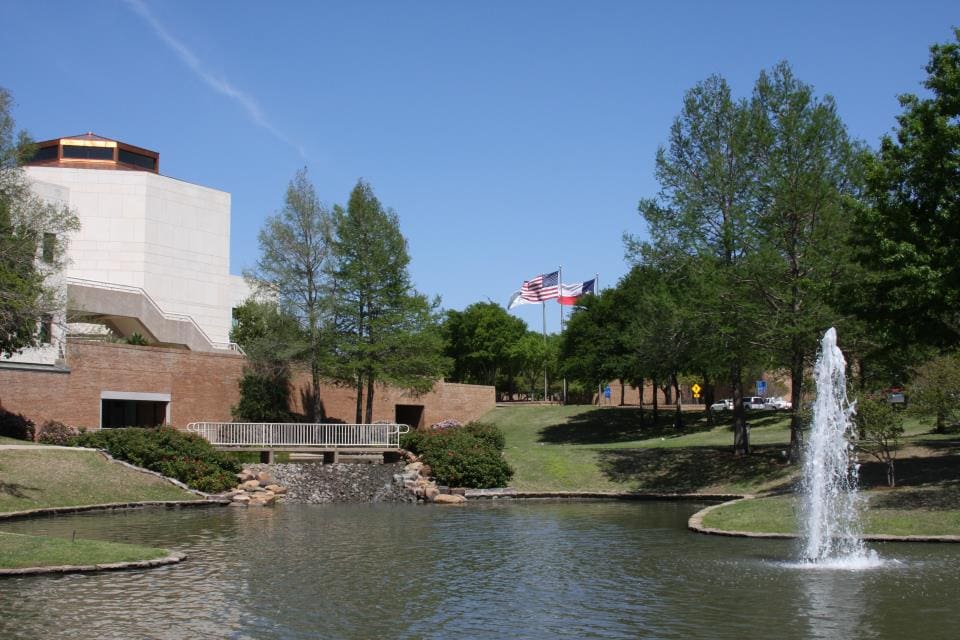After hearing from citizens opposed to the project, city officials in the Dallas suburb of Carrollton dropped plans to use taxpayer money from a federal coronavirus relief program on enhancing the police’s ability to monitor citizens and enforce “proper social distancing” outdoors.
“This might be more pain than it’s worth,” Mayor Kevin Falconer told Carrollton City Council members as he recommended pulling the item from Tuesday’s meeting agenda and dropping the proposed grant request.
“This particular item has caused a lot of discussion out in the public,” Falconer said. “The effort was to take advantage of some of the funding that is out there for the COVID crisis.”
Falconer said the city sought to use the coronavirus response funds to replace a couple of older vehicles the city uses to patrol parks and trails and to buy software for drones the city already has.
“The way this was presented probably created a bit of a misconception about how we intend to use these,” he said.
Police Chief Derick Miller had proposed buying two utility vehicles and drone surveillance software to “enhance the [Carrollton Police] Department’s ability in encouraging social distancing in accordance with State and local requirements:”
“The purchase of the two UTVs will allow staff to cover more area during each shift, enhancing interactions with the public while encouraging proper distancing techniques. CPD is also proposing to apply for a video streaming software to attach to our drones that will allow for officers and command rank officials to live stream video of incidents from the substations CPD has set up in response to social distancing.”
Miller told council members Tuesday that his department didn’t need funding for any of the other items on the list of approved purchases.
“This is not about surveillance or inhibiting the rights of any of our citizens,” Falconer added. “Because of our grant, it was easily misconstrued.”
The grant money is from the Coronavirus Emergency Supplemental Fund administered by the U.S. Department of Justice. The fund is part is part of the $2 trillion federal Coronavirus Aid, Relief, and Economic Security (CARES) Act. Much of the cash is being sent to state and local governments with few strings attached.
The CESF grant program allocated $850 million to “help public safety agencies address COVID-19.” Grant amounts are based on population and crime statistics.
Carrollton was allocated $45,072. The money must be used to “prevent, prepare for, and respond to the coronavirus:”
“Allowable projects and purchases include, but are not limited to, overtime, equipment (including law enforcement and medical personal protective equipment), hiring, supplies (such as gloves, masks, sanitizer), training, travel expenses (particularly related to the distribution of resources to the most impacted areas), and addressing the medical needs of inmates in state, local, and tribal prisons, jails, and detention centers.”
Falconer recommended replacing the old vehicles using other city funds instead of the grant money, which comes with constraints on how it can be spent.
“I do hope we apply for this grant,” said Council Member Pat Cochran. “It is money for something beneficial for our city.”
Cochran said she had a concern about the surveillance software, but added that it’s “important to remember that social distancing is a violation.” She said it is enforceable by local police under Texas Gov. Greg Abbott’s executive order, which has the force of law. “The governor gave them that right,” she said.
Council Members Steve Babick and Glen Blanscet agreed to pulling the grant proposal.
“None of this was ever intended to be a change in our policing policies,” added Blanscet:
“We have made it clear throughout all of this coronavirus issue that we’re looking for not a heavy-handed approach by our police. We’ve seen some of that around the country in other cities and police departments, and I’m proud of the fact that our police have encouraged social distancing but not issued citations or fines. … I think that’s the correct approach. … [Surveillance] is not what we’re trying to do.”
“I am concerned about the strings that are always attached to grants,” said Council Member John Sutter.
“I think it’s great when our staff finds grants that they can go after and get money when it’s available,” said Council Member Mike Hennefer. “But I sense a lot of us have spent some time on the phone on this issue.”
“I have not agreed with everyone I’ve talked to, but I am grateful for the citizens participating in this,” Hennefer said. “They raised their voices. I think their voices were heard.”
“We don’t want to spy on our citizens, and we’re not going to,” he added. “There are people out there who want to protect our freedoms and our rights, and I applaud them.”
Council members agreed to pull the item from Tuesday’s agenda, and council will review and revisit the grant proposal another time.





